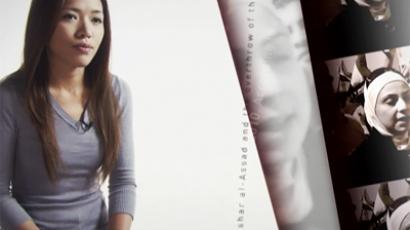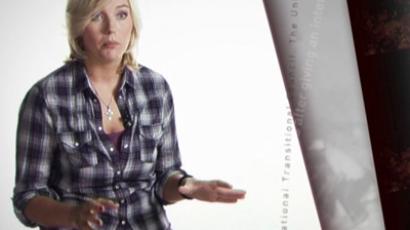Conflict between Iran and West ‘the greatest danger’ of 2012 – Russia’s UN envoy
Russia’s ambassador to the United Nations, Vitaly Churkin, believes that the conflict looming between Iran and Western countries poses the “greatest danger” in the upcoming year.
Iran’s recent threats to block a vital oil route if the West places sanctions on its oil exports, followed by the US’s sharp response to the threat, have attracted the attention of the international community and raised concerns that the events might push the two nations to the brink of war. With 2012 just days away, Russia’s ambassador to the United Nations, Vitaly Churkin, has been talking to RT about Russian and UN Security Council strategy in this conflict and other pivotal events of the year such as the Arab Spring and the turmoil in the Middle East. “This is a very dangerous scenario,” said Churkin, commenting on the Iranian-Western stand-off. But “we do believe that a peaceful solution is possible,” he said, pointing out that to avoid serious consequences the negotiations route needs to be followed.He added that Russia shares other countries’ concerns about Iran’s possibly developing nuclear weapons but does not “accept the proposition that the best way to prevent a war is to start a war.”“Our consistent stand, our effort, is going to be targeted at doing whatever we can in order to prevent this scenario of regional catastrophe being carried out in 2012,” he explained.Another pivotal event of the year was the civil war in Libya, and though the conflict is over, Security Council activity is not, Churkin said. A number of Security Council delegations, including the Russian delegation, have called for an investigation into civilian casualties in Libya. The move came after a disturbing report published by the New York Times claimed there had been dozens of civilian deaths as a result of NATO strikes. Churkin explained that an urgent investigation is needed first of all to help those who might have suffered from the strikes. He said Russia will continue to pursue the clarification of these events within a matter of weeks, not months, which would be the case “if we rely on those other investigations.”He also promised that the move does not have any anti-NATO implications. “We don`t see anything anti-NATO in this. After all, NATO is a partner of the United Nations and NATO has been acting on the basis of a Security Council mandate, so the Security Council should also play an active role in having this matter clarified.” Apart from the question of an investigation, Churkin said the Security Council is working quite harmoniously on a range of issues connected with Libya. He mentioned “looking into the dangers of weapons left unattended in the course of the conflict” and “helping Libyans to rebuild their political and economical structures.”Keeping track of weapons-trafficking from Libya to other countries, especially to Syria, is one of the matters the Security Council is working hard on Churkin said. “We are told that the most dangerous of those weapons in terms of terrorist use have so far not been detected outside Libya,” he added.When asked about Libyan militants operating in Syria, Churkin said it is no surprise. “There are some there trying to stir trouble. What usually happens when there is crisis, all sorts of extremists and terrorist elements show up.” He recalled the recent terror attacks in Damascus and reports from Lebanon saying Al-Qaeda groups had been spotted moving into Syria.He said that Russia has an extremely clear stand in this conflict, which is to help “the people of that country find a peaceful political solution to the crisis.”“Two weeks ago Russia introduced a draft resolution to encourage the political process by trying to encourage the Arab League’s monitoring mission which is being deployed now in Syria. We are basing our proposal on the presidential statement which was adopted by consensus by the SC on August 3, which called on everybody to stop the violence in Syria and which stated that the solution to the Syrian crisis could only be found through a Syrian-led all-inclusive political process.”Speaking about the situation in Syria, Churkin also pointed out that it is unreasonable to push for reforms in a country where a military conflict is going on.“The sooner the crisis, the military clashes, stop the sooner the international community will be in a position to demand that the Syrian authorities move along the reform track as soon as possible,” he explained, adding that until the conflict is over, talk of reform is a “theoretical conversation.” Speaking about Security Council strategy in 2012, Churkin said that it would try both to solve current problems and avert any new ones. “Preventive diplomacy is a very big concept for the SC and for the UN, but we also try to encourage the work which is going on regarding some longstanding conflicts,” he pointed out.














